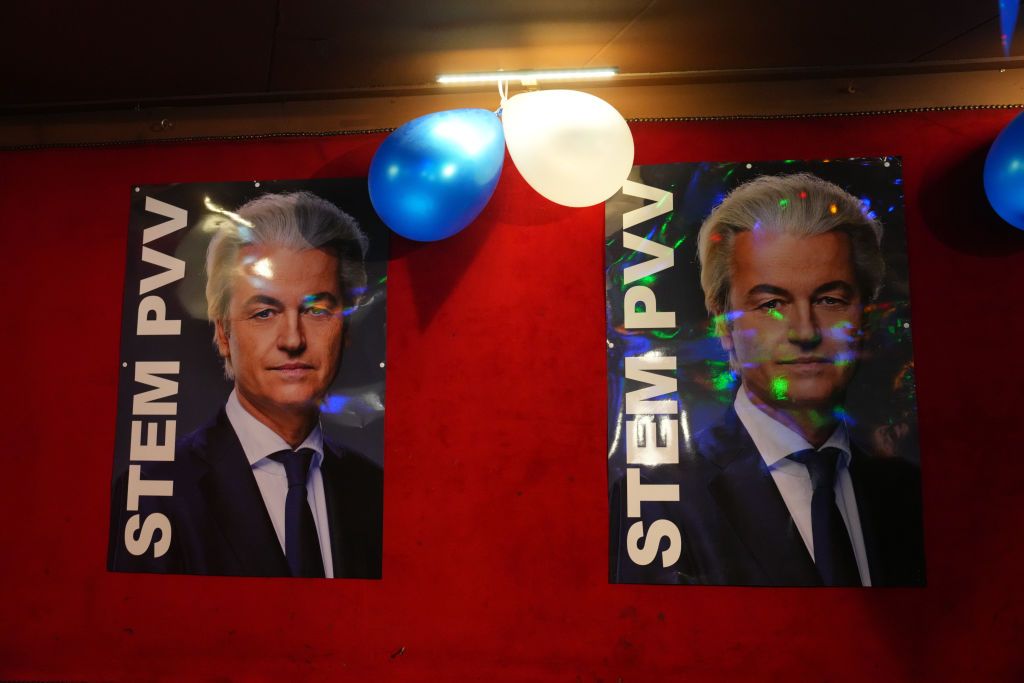Netherlands allocates 2.5 billion euros for Ukraine in 2024.
The Dutch government has earmarked 2.5 billion euros (£2.7 billion) in funding for Ukraine, Foreign Minister Hanke Bruins Slot said on Dec.
5 during a visit to Kyiv, where she met with her Ukrainian counterpart Dmytro Kuleba. "Your fight is our fight. Your security is our security.
That's why the Dutch government has allocated 2.5 billion euros to support Ukraine in 2024," Bruins Slot said. She also commented on Ukraine receiving recommendations from the European Commission to begin talks on its accession to the EU, saying that the Netherlands is "positive" on the decision and that Ukraine's "future is with us." Ukraine received the recommendation on Nov.
9, and it must be voted on by EU member states later in December. Part of the accession process will include Ukraine's ability to successfully implement reforms required by the EU. "I also want to stress here how impressive Ukraine's efforts have been to implement the required reforms under such difficult circumstances of war," Bruins Slot said.
During her trip, the foreign minister also visited Bucha, where Russian soldiers massacred hundreds of civilians at the beginning of the full-scale invasion. It was "a chilling example of the abhorrent crimes committed against innocent civilians," which "cannot go unpunished," she said on Twitter. In order to help strengthen Ukraine's capacity to prosecute war crimes and other internationally recognized crimes, Bruins Slot said that the Dutch government would provide 9 million euros (£9.6 million) to train Ukrainian prosecutors and judiciary.
It will also allocate 8 million euros (£8.6 million) to the European Union Advisory Mission, which will provide funding for police and will help "restore the rule of law" in Ukrainian territories liberated from Russian occupation. Following the electoral victory of Geert Wilders and his Party for Freedom (PVV) in the Dutch elections on Nov.
22, there has been concern that aid for Ukraine from the Netherlands may decrease. "The PVV is now the largest party and they have never been enthusiastic about support to Ukraine.
They have even been pro-Russia at times. So that has me worried," Dutch Defense Minister Kajsa Ollongren said on Nov.
24. Wilders, whose PVV party won 37 of 150 seats in the Dutch parliament, has long been vocally anti-immigration but has also made several statements in favor of Russia and against the Netherlands continuing to provide support to Ukraine.
He has close relations with Hungarian Prime Minister Viktor Orban and has been accused of having ties with Russia. However, Wilders has condemned Russia's full-scale invasion of Ukraine and referred to Russia as the aggressor. Wilders would need to build a coalition in order to actually govern the Netherlands, and his ability to become prime minister is not guaranteed.
Polls have suggested that an overwhelming majority of Dutch citizens are in favor of continued support for Ukraine.
From F-16s to frozen assets: How Dutch far-right's win could impact Ukraine
Nearly two decades after launching his far-right political party, mixing xenophobia with Euroskepticism, Geert Wilders emerged as the winner of the Dutch parliamentary elections on Nov.
22. "The winds of change are here," said Hungarian Prime Minister Viktor Orban, after potentially receiving one m...
